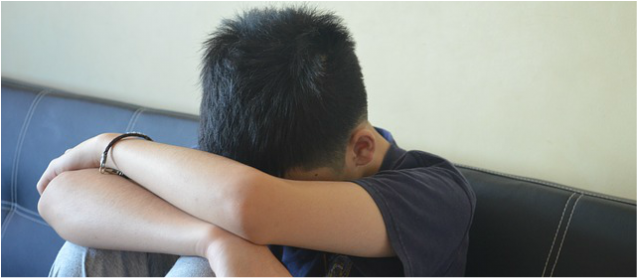|
Web Reprint, www.kidshealth.org, excerpts Depression isn’t just bad moods and occasional melancholy. It’s not just feeling down or sad, either. These feelings are normal in kids, especially during the teen years. Even when major disappointments and setbacks make people feel sad and angry, the negative feelings usually lessen with time. But when a depressive state, or mood, lingers for a long time—weeks, months, or even longer—and limits a person’s ability to function normally, it can be diagnosed as depression. Recognizing Depression If you think your child has symptoms of depression, it’s important to take action. Talk with your child and your doctor, or others who know your child well. Many parents dismiss their concerns, thinking they’ll go away, or avoid acting because they may feel guilty or prefer to solve family problems privately. For a long time, it was commonly believed that children did not get depressed and that teenagers all went through a period of “storm and stress,” so many kids and teens went untreated for depression. Now more is known about childhood depression, and experts say it’s important to get kids help as soon as a problem is noticed. Parents often feel responsible for things going on with their kids, but parents don’t cause depression. However, it is true that parental separation, illness, death, or other separation can cause short-term problems for kids, and sometimes can trigger a problem with longer-term depression. This means that if your family is going through something stressful it’s usually helpful to turn to a counselor, therapist, or other expert for support. It’s also important to remind your child that you’re there for support. Say this over and over again—kids with depression need to hear it a lot because sometimes they feel unworthy of love and attention. Remember, kids who are depressed may see the world very negatively because their experiences are shaped by their depression. They might act like they don’t want help or might not even know what they are really experiencing. Getting help for your child Your first consultation should be with your child’s pediatrician, who probably will perform a complete examination to rule out physical illness. If depression is suspected, the doctor may refer you to a specialist who can diagnose and is qualified to treat depression. These health professionals can help, but it is important that your child feels comfortable with the person. If it’s not a good fit, find another. Your child’s teacher, guidance counselor, or school psychologist also might be able to help. These professionals have your child’s welfare at heart and all information shared with them during therapy is kept confidential. What can I do to help? Most parents think that it’s their job to ensure the happiness of their kids. When your child’s depressed, you may feel guilty because you can’t cheer him or her up. You also may think that your child is suffering because of something you did or didn’t do. This is not necessarily true. If you’re struggling with guilt, frustration, or anger, consider counseling for yourself. In the end, this can only help both you and your child. Other ways to help:
Depression can be frightening and frustrating for your child, you, and your entire family. With professional advice and your help, your child can start to feel better and go on to enjoy the teen and adult years. Courtesy of Motivated! magazine. Used with permission.
0 Comments
|
Categories
All
Archives
March 2024
LinksFree Children's Stories |


 RSS Feed
RSS Feed
